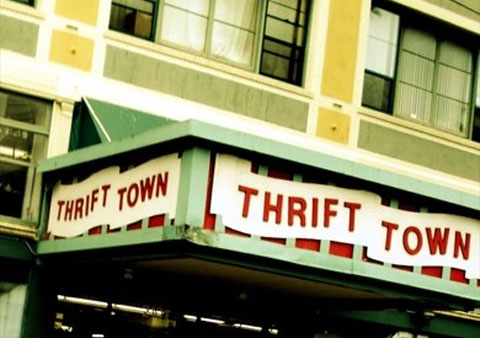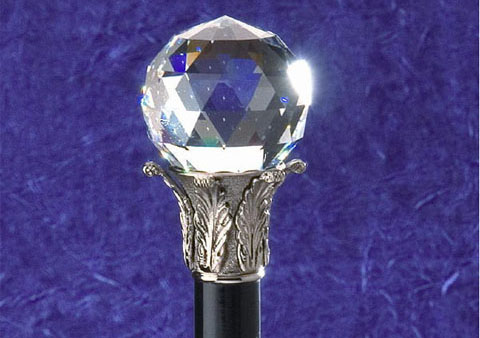Dr. Yes and the Mystery of the Mission
13 Mar 2008
Episode
“LOOK not in my eyes, for fear
Thy mirror true the sight I see,
And there you find your face too clear
And love it and be lost like me.
One the long nights through must lie
Spent in star-defeated sighs,
But why should you as well as I
Perish? gaze not in my eyes.”
––A Shropshire Lad , 1896, A. E. Housman (1859-1936).

Hippie Mausoleum
It seemed to take no time at all for everyone from the FBI to the Library of Congress to come and see the small museum to the hippie-dream-one-ad. It was going to take months to go through all the papers, films, audio tapes and everything else. But all Yes wanted to do right now was go looking for stuff to make art with in this giant junk store. He wasn’t going back to the college anytime soon. He’d just been given more money by inheritance than a thousand years could earn at that place.
Hope Chest
One item he had found amongst his father’s belongings had intrigued him. It was a chest, the sort that Italian girls are given in youth which contains all they will need for when they finally marry their suitors. “Hope Chests” they were called. Only in this were not linen, and bedclothes, and a wedding dress, but an enormous Inverness Cape, the sort worn by Orson Welles or Dr. Who as played by Jon Pertwee from the early 1970s. There was a black matador-style flat-top fedora hat, and a cane. Amidst the many films Yes’ father had left behind, he could be seen wearing the outfit, looking like a kind of psychedelic freak-out version of Sherlock Holmes.
Inside the cane was concealed a fountain pen and it was topped by a glass sphere about two inches across.
Thrift Town
Dr. Yes was walking to Thrift Town again. This double-storied museum of the present was an oasis to him. As thrift stores went, there were few like it in the world.
Thoughts of the room came back. His father’s pallid mummified face, younger than his own in death. Where had all this history come from to interrupt his life so completely? Why were the most well-off so willing to bring the culture to its knees? Who the hell was his father anyway? Amidst the new wealth, he still felt old and he still wanted to connect to himself and the Mission. The best place he knew was Thrift Town.
Thrift Town. “My soul belongs to Thrift Town” he heard himself say.
For a moment he thought he could see the old “17 Reasons” sign atop the building, the upper floors still miraculously set aside as artists’ studios. Flash of a pentacle superimposed as a hooker stumbled nearby.
“I don’t know why I love you” kept looping through his head. He’d heard the song at a party the night before where everyone in the room seemed to have arrived on mopeds. The song was “Elmo’s Dream” by Gil Mantera’s Party Dream. The sublime and the silly were fused in that song and he felt it was the emblem of his life.
There were see-though plastic Ziploc baggies of mixed toys hanging on racks, plastic oddities of obscure origin, electronic devices from the early 1980s. Batteries corroded or missing inside forgotten appliances. 8-Track cartridges. Amazingly well made VCRs, once very expensive models now selling for less than what a new-release videocassette would have cost a decade ago. Some for less than the burrito mojado he’d eaten at Taqueria Cancun an hour ago. How could such things fall into history so completely? He caught a glimpse of himself in an old bedroom mirror attached to a bedstead. He saw the face. Not only his own, but that of his father 40 years prior. He saw in his father’s face his own on the screen the night before. The projector whirred and the sprockets clicked and the edge numbers flashed before his eyes until his long dead father spoke to him via 16mm Ektachrome and synchronized sound.
“You will see this in 2008, your time. I want you to know that I don’t mind that things turned out this way, but I wanted you to at least understand what we were up against in 1968. Things are so bad now, people, friends of mine, are risking their life to stop the war.”
There were shots of the houses around the Panhandle, parties, hippies offering each other things. The Yippie shop on Haight, where everything on display was free.
A sales assistant approached Dr. Yes, interrupting his memory.
“Sir we’re having a sale on electronics today? Half-price? Enjoy shopping at Thrift Town”.
A part of Dr. Yes decided he was kind of getting pissed off at all this information and all this cryptic nonsense from his father’s weird tomb. The fact was, his father had offed himself in some act of supposed sacrifice, and in doing so had robbed his only son of any kind of understanding of life with a father. Yes had heard enough of Yippies, a half-assed revolution 40 years ago. All he had known were decades of right-wing leaders, a McWorld economy of constant and terrifying precarity. Had not the Left abandoned their posts at the time when their influence was most needed? How could they have let Reagan and everything that followed happen?
A shot rang out, like a car backfiring, or a firecracker. The glass window near Yes’ head sounded like it had been hit hard with a hammer. Flecks of Yes’ own blood sprayed onto a second-hand video camcorder on one of the shelves. Sirens wailed, the store alarm went off, people scrambled.
The sniper.
◊
Just a scratch. Had the sniper been aiming at him? Yes could have sworn he saw a figure on top of the building over the road on Mission, before the shot rang out. A brief, quick vision of a darting form, something long moving?
The round was moving at a velocity which had broken a piece of concrete off a supporting structure the size of a coffee mug.
He watched more film of his father that night, having nursed his wound. He sat in the dark, sipping cognac in the Inverness Cape, fedora and cane. His black cat purred on his lap. He took a toke on a large joint and watched as the projector unspooled history before his eyes.
On the film his father brushed aside some hair from his face as he spoke to camera. The film had been taken in the very room in which he sat, sun pouring through the enormous stain-glass window behind him. Girls were laughing in the next room on the soundtrack. A guitar was playing, as was a harmonica?
“You see, son, your struggles are mine. The films, the books, the house, the whole fucking enchilada’s yours. And for sure you are going to be having your issues in 2008. Whatever they are, use the resources I’ve given you to do something important and unique to your time and your situation.
The world, no matter how much it has changed or how much it has remained the same, can only be a continuation of that which defines our time here in the 1960s. Where conservatives seek a linear, orderly sequence of history, ours is the philosophy of life-as-miasma. To live meaningfully is to live politically, creatively, as if life mattered.”
“Ours is the experience of time experienced outside of the realm defined by Power. The house on Masonic is all yours, son. Do with it what thou wilt. Burn it if you want. But whatever you do, make sure that you live your live meaningfully. Live sincerely. You are only forty-five. Six years older than I am now. So in a weird way, the young father instructs his older son. Take the cape and cane and take them to this woman Marie Morrow, who will have received a letter like the one which told you of where to find me. You are to meet her at the very center of the walkway across the Golden Gate Bridge, at 1PM on the first of May, 2008!”
The screen was filled with the full face of the most beautiful woman Yes had ever seen. She simply smiled at the camera, looking a little like a very young Bette Davis, holding up the cane, peering into the crystal ball which sent rainbow colors all over her head and hair and sent colored patterns onto the walls.
She was completely naked. She looked up at the camera now pointing down to her and the cane and she spoke.
“See you on the bridge. Forty years from now, baby!”
It was going to be a long weekend.

Dr. Yes will return in the next issue of OtherZine!
David Cox is a writer, filmmaker, and artist who lives in the Mission District of San Francisco. He is a regular contributor to OtherZine. He is also working on a film version of the Dr. Yes story.
A trailer for this film can be viewed on Archive.org
◊